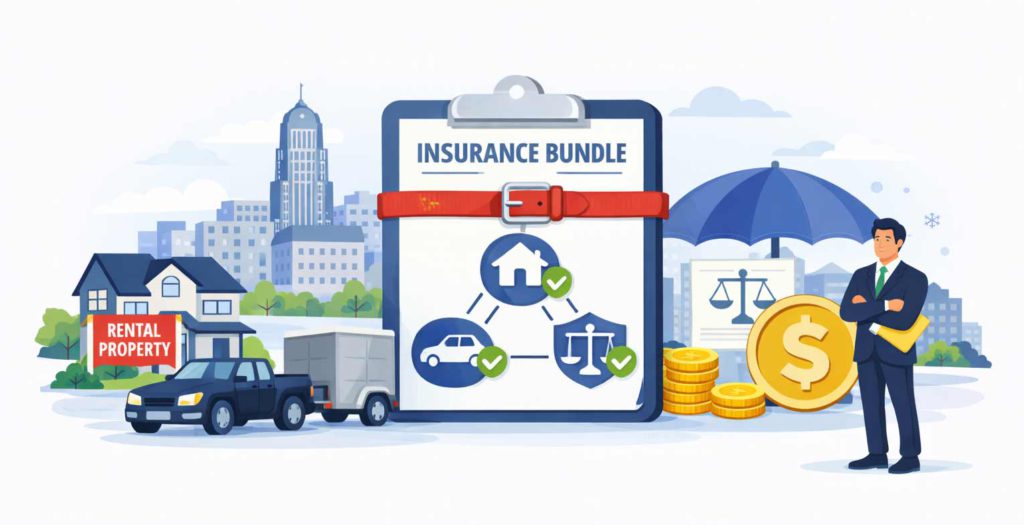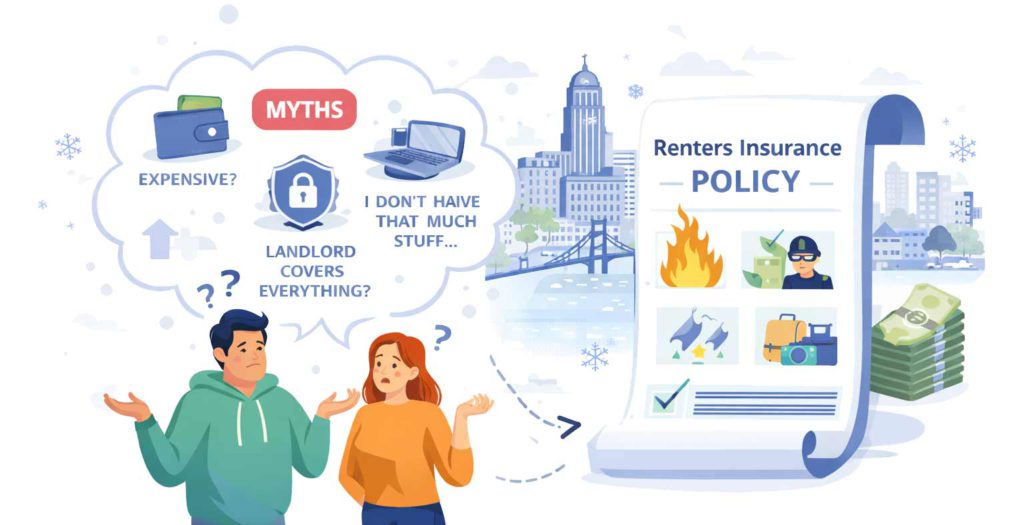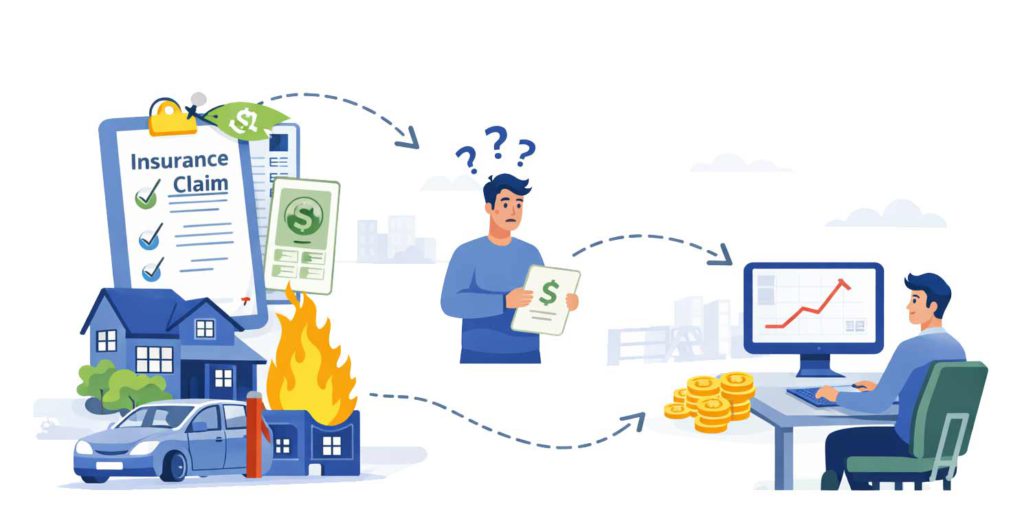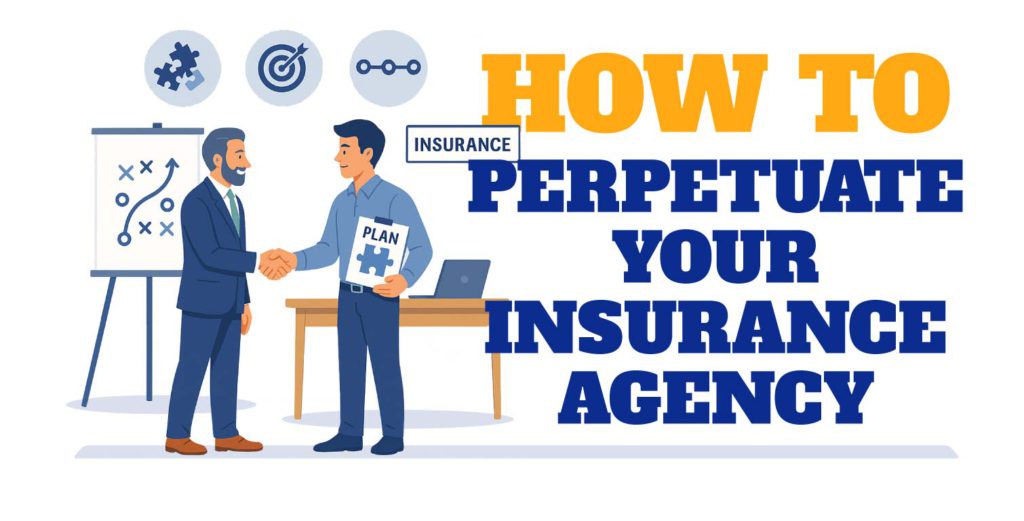Real estate investment can be one of the most rewarding and stable ways to build long-term wealth. But like any business venture, it doesn’t come without risk. From tenant injuries and contractor accidents to third-party property damage and legal disputes, a lot can go wrong—especially when you’re managing multiple properties or dealing with a high volume of foot traffic. That’s why general liability insurance is an essential part of any real estate investor’s toolkit.
At Weed Ross, we understand the unique liability exposures that real estate investors face in New York and beyond. As a local, independent insurance agency, we partner with over 40 major carriers to help you secure the best protection for your investment portfolio—without overpaying or missing key coverage. In this article, we’ll walk you through what general liability insurance covers, why it matters, and how it fits into a complete risk management strategy for real estate investors.
In this article, we’ll cover:
- What general liability insurance includes for property investors
- Common scenarios where liability claims arise
- Who needs general liability insurance (and when it’s required)
- How this coverage fits with other types of real estate insurance
- How Weed Ross helps you find the right policy for your portfolio
What Does General Liability Insurance Cover?
General liability insurance (GLI) is designed to protect property owners and businesses from third-party claims of bodily injury, property damage, and related legal costs. In the context of real estate investment, that means you’re covered if someone gets hurt on your property or if your property causes damage to someone else’s belongings.
Here are some examples of what general liability insurance typically covers:
- Bodily injury: If a tenant, guest, or maintenance worker is injured due to unsafe conditions (like a broken stair, icy sidewalk, or loose railing), GLI covers their medical expenses and any legal claims that follow.
- Property damage: If your property or an action tied to your property damages someone else’s belongings—for example, a leaking pipe from your unit damages the apartment below—GLI can cover the repair or replacement costs.
- Legal defense costs: Even if a lawsuit against you is unfounded, the cost of defending yourself in court can be substantial. GLI typically covers attorney fees, settlements, and judgments.
- Personal and advertising injury: This includes claims of libel, slander, or copyright infringement tied to your business operations or property marketing.
It’s important to note that general liability does not cover damage to your own property, tenant disputes, or professional errors—those require other types of insurance (which we’ll touch on below).
Real-World Liability Scenarios for Real Estate Investors
Liability claims can arise from situations you may not anticipate—especially if you own or manage multiple units. Consider the following examples:
- A delivery driver slips on your icy front walkway and breaks their wrist. They file a lawsuit for medical expenses and lost wages.
- A tenant’s guest trips over a cracked patio tile and sues you for negligence.
- A faulty outdoor light fixture causes a fire that spreads to a neighboring building. The neighbor sues for property damage.
- You hire a contractor to do repairs, and they accidentally injure someone passing by. As the property owner, you could be held liable.
In each of these cases, general liability insurance can help protect your finances and your investment from being wiped out by legal fees or settlement costs.
Who Needs General Liability Insurance?
If you own any rental property—whether it’s a single-family home, duplex, apartment building, or short-term vacation rental—general liability insurance is a smart investment. It’s especially important for:
- Landlords with multiple units or high tenant turnover
- Investors working with third-party contractors or property managers
- Owners of short-term rentals or seasonal vacation homes
- Commercial property owners with regular customer or vendor traffic
In some cases, general liability insurance isn’t just a good idea—it’s required. Many lenders, landlords, and business partners will require proof of liability coverage before signing a lease or loan agreement.
How It Complements Other Real Estate Insurance Policies
General liability insurance is just one part of a larger framework designed to protect real estate investors from financial loss. To build a complete risk management plan, it’s important to understand how this coverage works alongside other key insurance types.
Property insurance, for example, covers physical damage to your buildings and structures caused by events like fire, storms, theft, or vandalism. While general liability addresses third-party claims, property insurance ensures your actual investment—the buildings themselves—is safeguarded against major loss or destruction.
Landlord insurance often takes things a step further by combining both property and liability protections into a single policy tailored specifically to rental property owners. This type of insurance typically includes coverage for tenant-related damage, loss of rental income, and legal fees related to evictions or lease disputes, depending on the policy.
Umbrella insurance is another valuable layer. It provides excess liability coverage beyond the limits of your general liability policy. For investors with high-value properties or larger portfolios, an umbrella policy can offer vital protection when a major claim exceeds your base policy’s limits.
Then there’s professional liability insurance, also known as errors and omissions (E&O). This coverage steps in if you’re providing services like tenant screening, property management, or leasing and a mistake or oversight leads to financial loss for a third party. It’s especially useful for landlords who are hands-on or investors managing multiple units themselves.
By layering these types of insurance, you create a robust and comprehensive safety net that protects both the physical aspects of your real estate portfolio and your financial well-being.
How Weed Ross Helps You Build the Right Liability Plan
Weed Ross is your local partner in real estate risk management. As an independent agency, we don’t work for the insurance companies. We work for you. That means we can:
- Compare general liability policies across dozens of top-rated insurers
- Identify gaps in your current protection and make tailored recommendations
- Bundle your real estate policies for better rates and simplified coverage
- Provide ongoing service as your portfolio grows or your needs change
Because we live and work in the same New York communities you invest in, we bring a local understanding that national call centers can’t match. Whether you’re buying your first duplex or managing a portfolio of apartment buildings, we’ll make sure your general liability insurance gives you the coverage—and confidence—you need.
In real estate, things can go sideways fast—and liability claims are one of the biggest financial threats to investors. General liability insurance is your front line of defense, covering you when accidents happen, lawsuits are filed, or costly injuries occur on your property. Contact us today to review your current policy or get a quote for your next investment. Let’s protect what you’re building.



